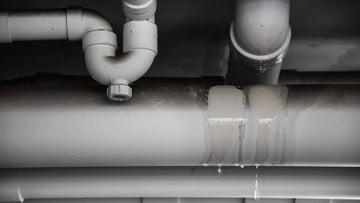In a world where technology is increasingly intertwined with environmental consciousness, the advent of the solar-powered leak detector signals a pivotal development in water management systems. For industry professionals concerned with Quality Assurance (QA), the integration of solar energy into leak detection offers both innovative efficiency and profound sustainability. Early detection of leaks is crucial to preventing water waste and infrastructural damage. By leveraging solar power, these systems ensure continuous operation and minimal environmental footprint, making them an essential tool for businesses and residences alike.
The application of solar-powered technology in leak detection provides an opportunity to address not only environmental concerns but also economic ones. Businesses can save on operational costs while contributing to global sustainability efforts. Industry QA professionals will find this development noteworthy, as it combines cutting-edge technology with practical utility. The integration of solar-powered solutions in industries such as water management is a testament to growing awareness and action towards greener practices.

Benefits of Solar-Powered Leak Detectors
Energy Efficiency and Environmental Impact
The primary benefit of using a solar-powered leak detector is its energy efficiency. These devices operate independently of the electrical grid, harnessing solar energy to power their sensors continuously. This feature is particularly beneficial in remote locations where access to electricity may be limited or non-existent.
By reducing dependency on electrical power, these leak detectors also lower carbon footprints. The adoption of solar technology in leak detection aligns with broader environmental goals, such as emission reduction and sustainable resource use. Such practices are particularly important in today's world, where businesses are increasingly held accountable for their environmental impact.
Cost-Effectiveness
Initial concerns about the costs associated with solar-powered systems are mitigated by long-term savings. Once installed, these systems significantly reduce utility bills associated with traditional power sources. Moreover, they require less maintenance compared to their non-solar counterparts, which often suffer from mechanical wear and tear due to continuous energy fluctuations.
Industry QA professionals will appreciate the ease with which these systems can be integrated into existing infrastructures. Over time, the investment in solar-powered leak detectors pays off, presenting a strong case for businesses aiming to optimize their operational expenditures.
How Solar-Powered Leak Detectors Work
Advanced Sensor Technology
Solar-powered leak detectors utilize advanced sensors that can detect the presence of moisture or changes in environmental conditions that indicate a leak. These sensors are often equipped with wireless communication capabilities, enabling them to send alerts to monitoring systems in real-time. This allows for immediate response, thereby preventing further damage and addressing potential issues quickly.
The real-time data collected by these sensors can be analyzed by industry QA teams to understand the frequency and causes of leaks. This data-driven approach enhances preventive maintenance strategies and allows for more informed decision-making processes. Integrating pipe burst detection into your system can further improve early warning signs.
Continuous Operation
One of the standout features of solar-powered leak detectors is their ability to operate continuously without requiring frequent power-ups. During daylight, the detectors capture solar energy, which is stored in batteries for use during the night or low-light conditions. This ensures that the system is always operational, providing peace of mind to users who can rest assured that their properties are protected at all times.
For critical infrastructures, such as data centers or manufacturing plants, the importance of uninterrupted leak detection cannot be overstated. Such facilities can incorporate additional features like a battery backup leak alarm to safeguard sensitive operations.
Industry Applications and Case Studies
Commercial and Residential Uses
Solar-powered leak detectors are suitable for a variety of applications, ranging from small residential homes to large commercial enterprises. In residential settings, these systems protect homes from costly water damage. In commercial settings, they can be particularly advantageous in protecting assets such as inventory and electronic equipment.
One successful case study involves a large retail chain that integrated solar-powered leak detectors in their stores nationwide, reporting a significant decrease in water-related incidents and associated costs. Similarly, in agricultural settings, these detectors prevent water waste and ensure optimal irrigation practices by monitoring leaks and water flow continuously.
Challenges and Solutions
While the benefits are profound, implementation challenges exist, such as initial setup costs and requiring adequate sunlight exposure to function optimally. However, innovations like hybrid systems that supplement solar with traditional power sources have largely mitigated these issues, making solar-powered detectors widely adaptable.
Industry QA professionals are instrumental in overcoming these challenges by conducting thorough site assessments and ensuring proper installation and maintenance. Continual improvements in AI technology in water management further support these advancements by enhancing predictive capabilities and offering more robust solutions.
Conclusion: A Sustainable Future with Solar Innovation
The integration of solar energy into leak detection systems signifies a significant step forward in sustainable water management, combining environmental consciousness with cutting-edge technology. For industry professionals in the QA field, such innovations allow for improved monitoring capabilities while addressing broader sustainability goals.
By adopting solar-powered leak detectors, industries across various sectors can not only save on costs but also contribute to a more sustainable future. For businesses looking to lead by example, this presents an opportunity to showcase their commitment to environmental responsibility while enhancing operational efficiencies.

FAQs
Can solar-powered leak detectors work in low-light conditions?
Yes, solar-powered leak detectors are equipped with battery storage that allows them to function during nighttime or low-light conditions. They store energy captured during the day for continuous operation.
How does the cost of solar-powered detectors compare to traditional systems?
While the initial investment may be higher, solar-powered systems offer long-term savings through reduced energy costs and lower maintenance requirements.
Are solar-powered leak detectors suitable for all climates?
While optimal solar exposure is ideal, many modern detectors are designed to work efficiently even in less sunny climates thanks to advancements in battery and hybrid technologies.






